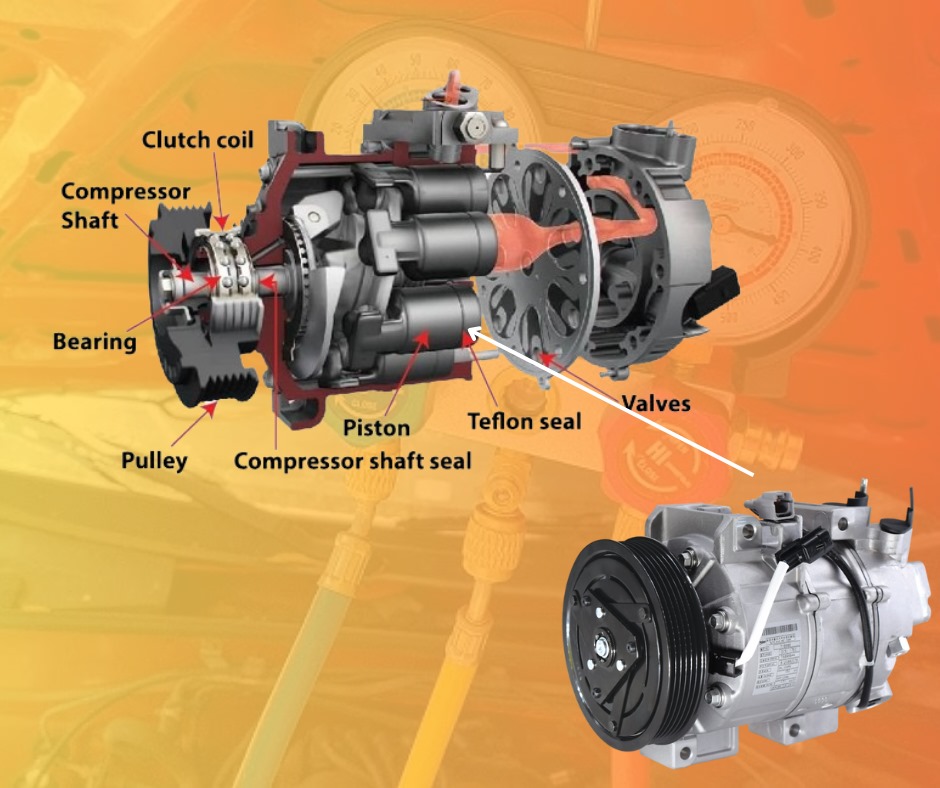Silencing the AC Compressor: Noise Reduction Tips

Discover how to transform your noisy AC unit into a whisper-quiet system with effective, easy-to-implement solutions.
Understanding AC Compressor Noise: Causes and Impacts
The persistent hum or rattle of an AC compressor can disrupt the tranquility of any living space. Understanding the root causes of this noise is the first step towards mitigation. Common culprits include loose parts, refrigerant pressure issues, and worn out compressor isolation feet. The impacts of these noises go beyond mere annoyance, potentially indicating malfunctions that could lead to system failure and costly repairs.
Prolonged exposure to loud AC compressor noise can also have adverse health effects, such as increased stress levels and interrupted sleep. Identifying and addressing the causes early on not only preserves the longevity of your AC unit but also ensures a peaceful environment.
Easy DIY Fixes to Reduce AC Compressor Noise
Some noise reduction measures can be easily undertaken without professional help. For instance, ensuring that the compressor is level can prevent unnecessary vibration and noise. Tightening loose screws and components can also make a significant difference. Additionally, homeowners can install anti-vibration pads or noise-reducing mats under the compressor unit to dampen the sound.
Another DIY approach is to check and clean the fan blades, which, if clogged with debris, can cause imbalance and generate noise. Ensuring that the surroundings of the compressor are clear of obstructions can also improve airflow and reduce operational strain, thereby lowering the noise level.
Choosing the Right Soundproofing Materials for Your AC Unit
Selecting appropriate soundproofing materials is crucial for effectively reducing compressor noise. Materials such as mass-loaded vinyl can be wrapped around the compressor to muffle the sound. Acoustic foam panels can also be used to line the interior of the enclosure housing the compressor, absorbing sound waves and preventing noise from escaping.
When choosing soundproofing materials, it is important to consider their durability and resistance to weather elements since the compressor is typically located outdoors. Materials should also be non-flammable and have proper ventilation to prevent overheating of the AC unit.
Professional Solutions for AC Noise Control
In some cases, the extent of the noise problem may require professional intervention. HVAC technicians can perform a thorough diagnosis and undertake complex repairs such as fixing refrigerant leaks, replacing faulty compressor parts, or installing noise blankets specifically designed for AC units.
Professionals can also assess the need for more advanced solutions, like constructing sound barriers or installing secondary soundproofing systems, to ensure that noise levels are kept within acceptable limits. Regular professional maintenance can preemptively address potential noise issues before they escalate.
Maintaining Your AC for Optimal Noise Reduction
Regular maintenance is key to keeping AC compressor noise at bay. This includes routine checks of the refrigerant levels, inspecting and cleaning coils, replacing air filters, and ensuring that all moving parts are properly lubricated. Such preventive care not only reduces noise but also enhances the overall efficiency and lifespan of the AC unit.
It's advisable to schedule professional maintenance services at least once a year to ensure that any potential issues are caught early on. A well-maintained AC unit will operate more quietly, providing a comfortable and serene environment for years to come.
Conctact us to order for an AC compressor

 Loading..
Loading..